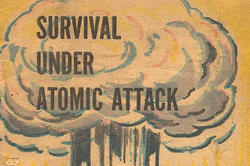RISD’s Center for Complexity reports on its second entirely virtual, pandemic-related summer symposium.
Rethinking the Opioid Crisis

RISD’s Center for Complexity (CfC) is designing a spring studio for graduate students focused on building community support for Rhode Islanders affected by the national opioid crisis. Based on two NIH-funded studios that ran last summer and brought together experts on opioids and overdose from Rhode Island Hospital’s Center of Biomedical Research Excellence (COBRE), the project is intended to jump-start fresh ways of thinking about the ongoing crisis.

“In a field that is wracked by constant scarcity—not enough time, not enough people, not enough money to meet the scale of the problem—it’s difficult to take a step back and think about what’s really needed,” says the CfC’s Tim Maly, who helped develop last summer’s experimental studios. The possible outcomes of the project, he explains, could range from new product ideas to new services, new policies, new ethics, new framing and new narratives.
“In a field that is wracked by constant scarcity... it’s difficult to take a step back and think about what’s really needed.”
“Studios provide a platform for open, guided inquiry into problems like this for which there are no simple or complete answers,” adds CfC designer/researcher Toban Shadlyn. “We ask people to engage in everything from discovery to inquiry and exploration, to debates and conversation, to making, testing, prototyping and hopefully implementing new ideas and interventions.”

Reflecting back on what the team accomplished last summer, Shadlyn explains that the CfC and COBRE invited 14 community members to those summer studios—current and former substance users, a state senator, a nurse, a healthcare analyst and an activist physician, among others—to step away from their everyday responsibilities and come together as equals to discuss the issues on a level playing field.
“Studios provide a platform for open, guided inquiry into problems like this for which there are no simple or complete answers.”
“Suddenly we were in a room together talking to each other as peers and respecting experiential, emotional, intellectual and academic intelligence,” says studio participant Kim Paull, director of data and analytics at Rhode Island’s executive office of Health and Human Services.

Working in small teams, the participants started by assessing current systems in Rhode Island and identifying challenges and opportunities. They then researched, debated and ultimately sketched preferred futures for the overdose crisis from five vantage points: building a true system of care unrestrained by limited resources; building trust in the community for the new system; decriminalizing the drug Buprenorphine, which is used to counteract opioid overdose; creating an ecosystem of safe and supportive place-based care and housing interventions for the local community; and overhauling the current system for providing transitional housing for recovering addicts.
As the spring semester approaches, the CfC and COBRE are continuing to build a community of practice around addiction and care in Rhode Island to help inform decisions, direct funding and guide priorities. “I really felt like all of the right people were at the table,” nurse Leigh Hubbard says of her experience in last summer’s studios. “I’m very hopeful that the work we do will make it to key decision-makers in our state.”
For more information about how the CfC is addressing the opioid crisis, visit complexity.risd.edu.
February 8, 2022


